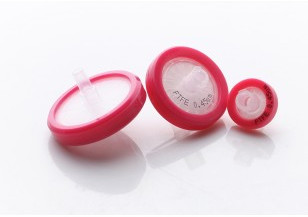If you’re looking to bring purity and quality to your research, you should ideally look to invest into PES or Polyethersulfone syringe filters. Now that you’ve probably researched a bit or two about it, you’ve probably come back with a lot of doubts or questions. This article should help solve your doubts. Below are listed a few questions:
What are PES syringe filters used for and what is it certified for?
A PES syringe filter is certified for the use of tissue culture filtration, ion chromatography, and filtration of nucleic acids and proteins. This filter could be applied towards the purification of peptides and enzymes and would especially work for biotechnology industries.
How are these filters made available?
Mostly available in packs of 100s, it is segregated through color codes to help with its identification. For efficient handling and to keep away from possible leaks, each filter comes with a female inlet and a male slip outlet.
How can one be sure of their filtering feature?
The syringe filters make available thermal stability and assure higher oxidation making it absolutely safe to use. In addition, the filter also comes with chemical stability and polypropylene housing.

What are the characteristics of the PES syringe filter?
It is hydrophilic in nature and comes along with low protein binding, high flow rates, and great chemical stability. Additionally, it also helps with oxidative stability, high thermal, and low concentrations of extractable elements.
Would you need to choose a syringe filter that would stay compatible with your research application?
Yes, absolutely! You may want to understand that it is important for an individual to choose a syringe filter that would work in line with the chemicals required for your project. Not all syringe filters are the same and would stay incompatible with all applications. There would be sheer differences with its chemical compatibility as well as hydrophilicity. If you’re lucky though, you could get your hands on universal products. You may have to ransack the web for that.
What would happen if you were to choose a wrong filter?
You may want to understand that PES syringe filters are best known to help you with accuracy in your research. This is done by extracting off all unwanted particles and contaminants and sometimes, by making use of the wrong filter, you could be doing just the opposite. A wrong filter could as well result in extractables being eluted into the samples through the filter.
While you could run through a hundred answers on the PES filter, it is equally important that you source these filters from genuine and reliable companies, especially when ordering online. If the time permits, make sure to check the reviews of the services.


